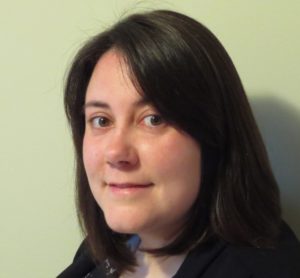Events
Date: Tuesday, July 21th, 2020
Time: 12:00Â PM – 1:00 PM
Location: Online – WebEx
Registration/Event Information:
https://events.vtools.ieee.org/m/234954
Event Contact: Kexing Liu (kexing.liu@ieee.org)
Speaker: Dr. Jacques Carolan of University of Copenhagen, Danmark
Title of the talk: Quantum Photonics Processors to Accelerate Machine Learning
The generation and manipulation of quantum states of light has historically played a critical role in the development of quantum information science: from the first violation of Bell’s inequality to the more recent development of near-term quantum algorithms such as the variational quantum eigensolver. In this talk, I present a new frontier for photons at the intersection of quantum mechanics and machine learning. I will first provide a short introduction to the field of quantum photonics, then demonstrate how quantum photonic processors can accelerate both quantum and classical machine learning. Finally, I show how optimization techniques can enhance large-scale quantum control and provide a new path towards efficient verification of near-term quantum processors.
Time: 5:00Â PM – 6:00 PM
Location: Online
Registration:
Email (Syed.Bokhari@fidus.com)
Event Contact: Syed Bokhari (Syed.Bokhari@fidus.com)
Speaker : Dr. Bhyrav Mutnury, DELL EMC, Austin TX.
Abstract:
The challenges associated with high-speed signal integrity (SI) are becoming exponentially complex with the doubling of signal speeds every generation. In this presentation, high-speed server design is used an example to demonstrate the next generation SI challenges and potential opportunities to overcome these challenges. The presentation covers basics of SI, high-speed interconnects, analog and digital equalization and high-speed challenges beyond 32 Gbps.Â
See more information at:Â https://www.ieeeottawa.ca/wp-content/uploads/2020/07/Bhyrav_Mutnury_announcement.pdf

Webinar: Role of the Smart Grid in Facilitating the Integration of Renewables
Speaker: Prof. Dr. Saifur Rahman, Director, Virginia Tech Advanced Research Institute, USA, IEEE Power & Energy Society (PES) President 2018-2019, IEEE PES Distinguished Lecturer
Date/Time: Tuesday, July 28, 2020, 6:30 pm – 7:30 p.m. EDT
Admission: Free, but registration is required: https://events.vtools.ieee.org/m/234594
For more details, please visit: https://www.ewh.ieee.org/soc/pes/ottawa
Abstract – With the focus on environmental sustainability and energy security, power system planners are looking at renewable energy as supplements and alternatives. But such generation sources have their own challenges – primarily intermittency. It is expected that the smart grid – due to its inherent communication, sensing and control capabilities – will have the ability to manage the load, storage and generation assets (including renewables) in the power grid to enable a large-scale integration of distributed generation. In a smart grid, information about the state of the grid and its components can be exchanged quickly over long distances and complex networks. It will therefore be possible to have the integration of sustainable energy sources, such as wind, solar, off-shore electricity, etc. for smoother system operation. But in order for this to be possible, the electric utility will have to evolve, and change their ways of operation to become an intelligent provider of these services. This lecture introduces the operational characteristics of renewable energy sources, and various aspects of the smart grid – technology, standards and regulations. It also addresses the interplay among distributed generation, storage and conventional generation to provide an efficient operational strategy in the context of the smart grid.
Registration:
https://www.eventbrite.ca/e/techsploration-the-power-in-possibilities-tickets-113850086674
Event Contact:
Manar Helal (manarhelal@ieee.org)
Abstract
Considered a national best practice, Techsploration’s award-winning 4-phase program model provides young women in Grades 9 through 12 with opportunities to explore science, engineering, trades, and technology occupations, while creating awareness about the critical role of work in their lives. It also helps them understand the significance of high school math and science for their future careers. When we connect young women from diverse backgrounds with female role models and employers who embrace diverse and respectful workplace culture, we open doors to future career opportunities many young women may not consider otherwise. Techsploration’s network of industry partners/sponsors, alumnae, teachers, role models, and volunteers has enabled young women to reach their full potential. Together, we are changing lives through a simple concept: the power in possibilities.
Join Techsploration’s Manager of Communications and Strategic Partnerships, Emily Boucher, for information and insight on this award-winning program which has been delivering impactful programming for more than 22 years!
Bio

Emily Boucher is currently the Manager of Communications and Strategic Partnerships for Techsploration, an award-winning, Nova Scotia-based non-profit that encourages young women to explore careers in science, engineering, trades, and technology. Emily is a passionate advocate for Canada’s technology sector and driven to lead initiatives that support the advancement of women, in particular, within the country’s growing digital economy. Over the past year, Emily has helped lead Techsploration’s National Expansion pilot, an initiative expanding the organization’s best practice model to Ontario and eventually across the country – a first for Techsploration.
Previous senior-level roles with Digital Nova Scotia and the Canadian Advanced Technology Alliance (CATA) have also provided her with experience leading both provincial and national initiatives to support the growth of both Nova Scotia and Canada’s technology sectors. In 2013, Emily was one of 21 women from across the country chosen to participate in Tech Women Canada, a program that connects Canadian women in the technology sector to their peers in Silicon Valley and the impact/high growth culture of that region.
Emily holds a B.A. (Honours) in Political Science and English Literature from Carleton University and a diploma in Public Relations from Algonquin College. Currently, she volunteers as co-Chair of the Nova Scotia Chapter for Women in Communications and Technology (WCT).Â

Webinar: Measurement, Control and Protection in Smart Grid Energy Management Systems for Smart Buildings in a Smart City
Speaker: Prof. Dr. Saifur Rahman, Director, Virginia Tech Advanced Research Institute, USA, IEEE Power & Energy Society President 2018-2019, IEEE PES Distinguished Lecturer
Date/Time: Thursday, July 30, 2020, 6:30 pm – 7:30 pm EDT
Admission: Free, but registration is required: https://events.vtools.ieee.org/m/234586
For more details, please visit: https://www.ieeeottawa.ca/ims
Abstract – Smart grid is a modern electric system with its architecture, communications, sensors, measurements, automation, computing hardware and software for improvement of the efficiency, reliability, flexibility and security. In particular, the smart grid, when fully deployed, will facilitate the (i) increased use of digital information and measurement, control & protection technologies, (ii) deployment and grid-integration of distributed energy resources (DERs), (iii) operation of demand response and energy efficiency programs, and (iv) integration of consumer-owned smart devices and technologies. Different non-linear controls, such as back-stepping control, feedback linearization, model predictive control, and sliding mode control are applied to control DERs, and their grid integration. Another control technique gaining application in the smart grid space is based on multi-agent systems (MAS) which provide autonomy, reactivity and proactivity. As speedy communication facilities, such as fiber-optics, microwave, GSM/GPRS, 4G/5G are becoming the integral parts of the functioning smart grid, the integration of MAS in smart grid applications is becoming simple and feasible. This lecture focuses on the measurement & control issues of the smart grid and how MAS can provide an efficient tool to address such issues. In addition, an overview of the related challenges and opportunities for energy efficient building operation and management with deployment experience in the US will be provided.

